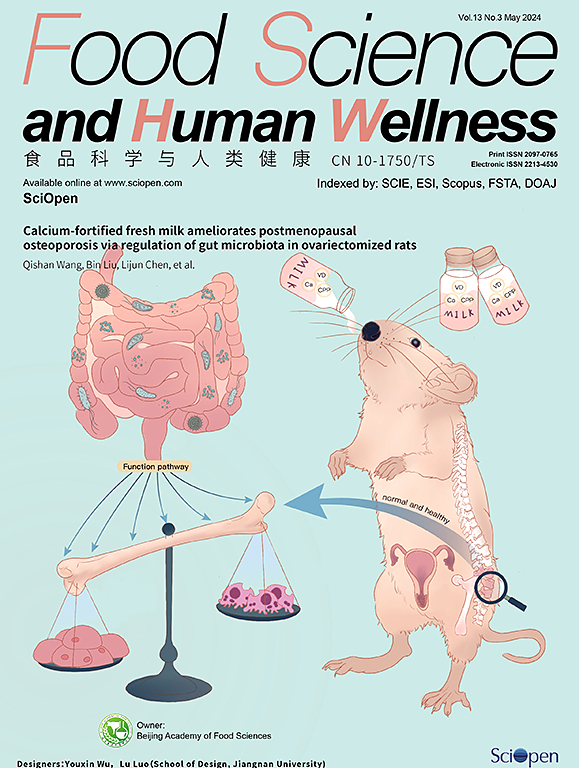问题的实质:植物肉类替代品与传统肉类产品的营养质量对比
IF 7.4
1区 农林科学
Q1 FOOD SCIENCE & TECHNOLOGY
引用次数: 0
摘要
植物性肉类类似物(PBMA)是为了模仿使用素食成分的传统肉类产品(TMP)的感官特征而配制的,随着植物性饮食的趋势越来越受欢迎,甚至在吃肉的消费者中也是如此。这篇综述比较了PBMA和TMP的营养质量,以扩大对模拟肉制品替代TMP的适用性的讨论,同时探索他们比较的其他属性。PBMA和TMP的复杂性意味着它们不能完全互换。重要的是,PBMA对健康的影响超出了它们的基本营养含量和质量。例如,餐后代谢和饱腹感可能受到产品配方、成分相互作用和热机械加工的影响,这些加工涉及到生产感官上可接受的PBMA。低钠PBMA产品有特殊的机会有助于向植物性饮食的健康转变。总之,不能认为PBMA比TMP更健康。它们的设计应全面考虑成分和加工,以确保它们支持采用植物性饮食的消费者实现理论上的健康益处。本文章由计算机程序翻译,如有差异,请以英文原文为准。
The meat of the matter: plant-based meat analogue versus traditional meat product nutritional quality
Plant-based meat analogues (PBMA) are formulated to mimic the sensory characteristics of traditional meat products (TMP) using vegetarian ingredients and are increasingly popular with the trend towards plant-based diets, even among meat-eating consumers. This narrative review compared the nutritional quality of PBMA and TMP to broaden the discussion on the suitability of simulated meat products to substitute TMP, while exploring other attributes for their comparison. The complexity of PBMA and TMP means they are not entirely interchangeable. Importantly, PBMA health effects extend beyond their basic nutrient content and quality. Postprandial metabolism and satiety, for example, can be affected by product formulation, ingredient interactions, and thermomechanical processing involved in producing organoleptically acceptable PBMA. There are specific opportunities for low-sodium PBMA products to contribute to a healthy shift toward plant-based diets. In conclusion, PBMA cannot be assumed to be healthier than TMP. They should be designed with comprehensive consideration of composition and processing to ensure they support consumers who are adopting plant-based diets in realizing the theoretical health benefits.
求助全文
通过发布文献求助,成功后即可免费获取论文全文。
去求助
来源期刊

Food Science and Human Wellness
Agricultural and Biological Sciences-Food Science
CiteScore
8.30
自引率
5.70%
发文量
80
审稿时长
28 days
期刊介绍:
Food Science and Human Wellness is an international peer-reviewed journal that provides a forum for the dissemination of the latest scientific results in food science, nutriology, immunology and cross-field research. Articles must present information that is novel, has high impact and interest, and is of high scientific quality. By their effort, it has been developed to promote the public awareness on diet, advocate healthy diet, reduce the harm caused by unreasonable dietary habit, and directs healthy food development for food industrial producers.
 求助内容:
求助内容: 应助结果提醒方式:
应助结果提醒方式:


